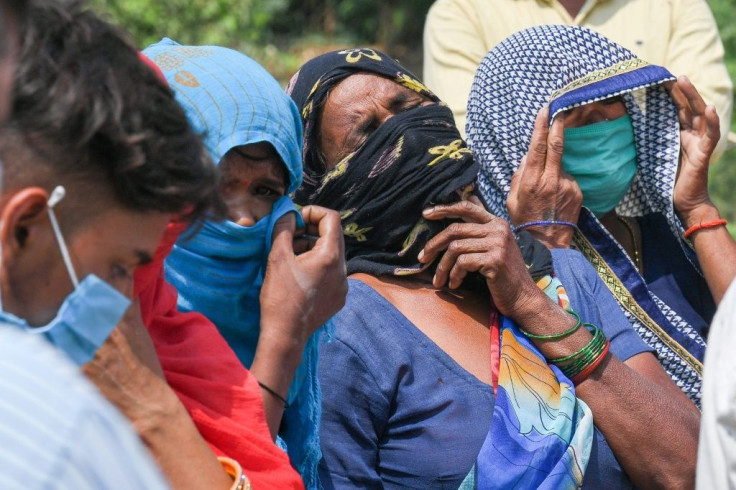Some India Hospitals Ask COVID-19 Patients To Leave If They Can’t Get Own Oxygen Ventilators
KEY POINTS
- COVID-19 patients are now asked to get their own medical equipment
- Many clinics and hospitals have turned away patients due to a shortage of medical supplies
- Experts say the shortage is a product of years of neglect of India's public health system
Some hospitals in India are turning away COVID-19 patients who couldn’t procure their own oxygen ventilators as the country’s medical supply chain remains crippled by a surge in cases.
Many small clinics and hospitals in the southern city of Hyderabad have told attendants to take away patients diagnosed with coronavirus after their families failed to get their own oxygen cylinder or ventilator.
“My aunt was admitted in a mid-sized hospital and after four days of treatment, her condition worsened," Mujeeb, a relative of a COVID-19 patient, told The Times of India. The report did not give the relative's full name. "While she was kept in an oxygen bed, she required an intensive care unit (ICU) facility and the hospital asked us to arrange for a ventilator. When we could not arrange one, we were asked to shift her to some other place.”
“But we were unable to get an ICU bed anywhere for one full day and she passed away,” he added.
A number of voluntary organizations in the city said they have received more than a dozen calls from patients asking for oxygen cylinders and other medical equipment.
“We have received over 15 to 20 calls last week for oxygen cylinders. Smaller hospitals are asking patients to get Remdesivir injection, which is not available anywhere,” Mujtaba Hasan Askari, a trustee with the Helping Hand Foundation, revealed to the publication.
India is currently battling a devastating shortage of medical oxygen and equipment as it records more than 300,000 new infections a day. Hospitals are now facing shortages in oxygen supply, hospital beds, antiviral drugs and COVID-19 test kits.
Experts say the shortages are a result of years of neglect of the country’s public health system. India allocates roughly 1% of its gross domestic product to health care, according to a 2018 National Health Accounts Estimates for India.
"It is disheartening. We are not a rich country. There has always been an inadequate health budget," Dr. Vineeta Bal, an immunologist at the Indian Institute of Science Education and Research in Pune, told NPR. "One percent of GDP is a pathetic state of affairs. It's nothing!"
K. VijayRaghavan, a top scientific adviser to the Indian government, warned that the country may see another surge in COVID-19 cases and urged the government to prepare for a third wave of the virus.
"Phase 3 is inevitable, given the high levels of circulating virus," he said in a news briefing. "But it is not clear on what timescale this phase 3 will occur... We should prepare for new waves."

© Copyright IBTimes 2024. All rights reserved.












